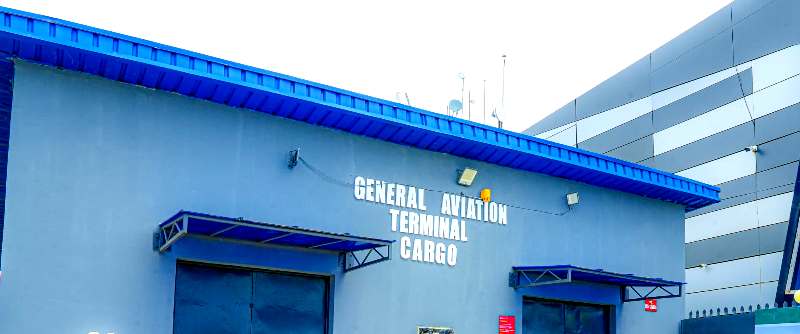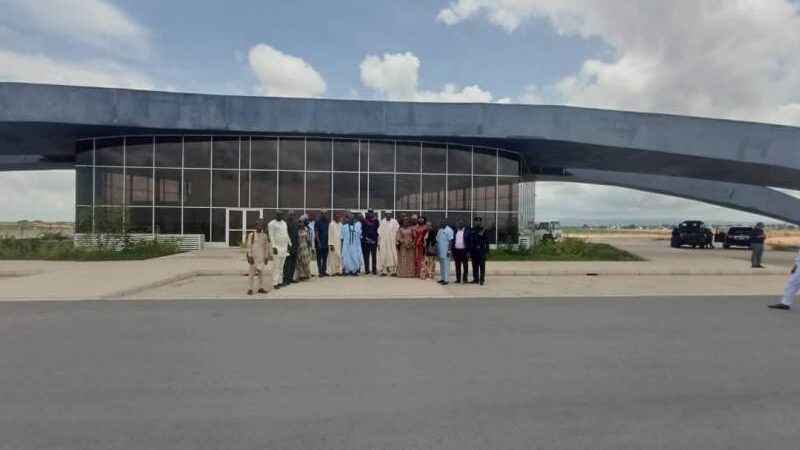Aviation’s Role In Helping Africa Become An Economic Superpower

With the world’s youngest and fastest growing workforce and rich natural resources, it is well documented that Africa has vast potential for socio economic development. Much has been said and written about how to unleash that potential, but the continent’s people, business and political leaders have what it takes to turn Africa into an economic giant; a major reason for this is the continent’s energetic, entrepreneurial spirit.
It is clear that work still needs to be done. Increasing productivity is essential to restoring Africa’s economic vitality and promoting growth. The aviation sector is a perfect example of where the challenge and potential lies. While home to 18% of the global population, Africa makes up just 2% of global air traffic, and 2% of international trade. At the same time, the International Air Transport Association (IATA) and the world’s major aircraft manufacturers, Boeing and Airbus, forecast that Africa is the only airline market that will grow significantly over the next 20 years.
As a major global airline, Qatar Airways is keenly aware of the potential Africa holds and is laser-focused on ensuring that aviation plays an important role in connecting Africa. The aviation sector would drive and promote Africa’s social, economic and political integration and boost trade and tourism. This has driven Qatar Airways to make investments and network expansions that support this goal.
You only have to look at Qatar Airways’ recent investment in Southern Africa’s premier independent regional airline, Airlink; a new route to Kinshasa and its existing engagement in the development of Rwanda’s aviation sector, to see that these words are backed by action. It’s why, for example, Qatar Airways has adjusted its services leading to its current Africa-wide summer capacity that averages over 44,000 seats per week, equating to a maximum of 180 flights a week to about 30 cities across the continent.
Moreover, Qatar Airways’ passengers travelling between Cape Town and Doha has since June 1st, been able to access Starlink’s cutting-edge internet connectivity on-board select flights, allowing them to enjoy a fully complimentary and ultra-fast Wi-Fi service for streaming, gaming, and working seamlessly at 35,000 feet.
As Qatar Airways celebrates its 20th anniversary in South Africa, the continued focus on the schedule and improved passenger experience reflects its commitment to the country and continent. The airline’s recent acquisition of a 25% stake in South Africa’s regional airline, Airlink, underscores its confidence in Africa’s tourism growth potential.
It is however, not just route frequencies that are helping drive aviation’s role in helping manifest Africa’s potential. Legislation is also a factor. The Single African Air Transport Market (SAATM) aims to harmonize Africa’s airspace, improve air traffic management, and increase intra-African air connectivity. So far, 34African countries have signed up. The movement is promising and will be more effective once all African countries come onboard.
We will need the best people working in aviation if the projected tourism numbers are to be met. The total contribution of travel and tourism to Africa’s GDP was USD191 billion in 2023 and is forecasted to rise by 4.4% annually from 2024 to 2034. The impact of this on the continent’s workforce cannot be overstated. It is projected that by 2034, travel and tourism would support 38,760,000 jobs (6.0% of total employment), an increase of 3.9% per annum since 2024, according to World Travel and Tourism Council (WTTC) research.
Qatar Airways’ commitment to Africa has been underscored with a steady recruitment drive to bolster the nearly 8,500 full-time employees from across Africa that are currently working within the Qatar Airways Group, both in Doha and the outstations.
Qatar Airways’ continuous strategy-aligned recruitment drive to help develop human capital across Africa, accelerates the airline’s growth in the region, which will continue to unlock hundreds of vacancies in fields such as cabin services, cargo and airport operations, customer services, engineering, flight operations as well as retail and hospitality services. This provides opportunities for exciting and fulfilling careers for young Africans with the world’s best and fastest growing airline and helps drive aviation’s role as a driver of regional and global development.
This commitment has led to Qatar Airways being voted the most desirable company to work for in countries like Algeria, Morocco, Seychelles, Uganda and Zimbabwe, according to switchonbusiness.com.
With greater employment opportunities comes the associated economic benefits. The ratification of the African Continental Free Trade Area (AfCFTA), a major component of the African Union’s (AU) Agenda 2063, was drawn up to accelerate the continent’s socio-economic growth.
The AU anticipates that Agenda 2063 will catalyze the integration of African regional markets, stimulating growth and supporting the welfare of its people. Underpinning that is the role of faster, easier, more economically viable trade networks, expediting the movement of people and goods.
The numbers speak for themselves. The WTTC estimates that international visitors will spend USD71.5 billion across Africa this year; an increase of USD11.2 billion from last year, and domestic visitors will spend USD101.3 billion, a year-on-year increase of 6.8%. Leisure spending still outweighs business spending at 70.1%.
The momentum of the aviation sector’s contribution in Africa’s development must be maintained. As governments fully embrace the freedom of movement under an ‘Open Skies’ policy, liberalization of Africa’s airspace promises to spur trade and development and deliver improved connectivity within Africa and between the continent and rest of the world.
Aviation plays a central role in infrastructure development, economic growth and tourism, generating $6 in economic activity for every $1 spent. According to a 2020 study conducted by the Air Transport Action Group, airlines, airport operators, retailers and other aviation related businesses supported 7.7 million jobs across Africa and generated a $63 billion contribution to GDP. Business and its associated out-turns such as employment, always thrives where there is dependable, safe, and competitively priced air transport network.
Now more than ever before, it is important that we all work hand-in-hand to ensure that we unlock all of the potential and benefits that come with better connectivity in Africa. Commercial aviation stands ready and is in many ways already playing its part in helping ensure that Africa emerges as the global economic superpower it is capable of becoming.
WRITTEN BY THIERRY ANTINORI






